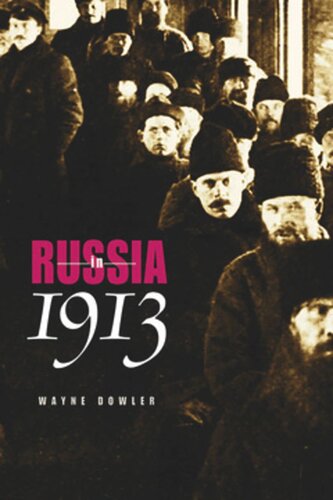

Most ebook files are in PDF format, so you can easily read them using various software such as Foxit Reader or directly on the Google Chrome browser.
Some ebook files are released by publishers in other formats such as .awz, .mobi, .epub, .fb2, etc. You may need to install specific software to read these formats on mobile/PC, such as Calibre.
Please read the tutorial at this link: https://ebookbell.com/faq
We offer FREE conversion to the popular formats you request; however, this may take some time. Therefore, right after payment, please email us, and we will try to provide the service as quickly as possible.
For some exceptional file formats or broken links (if any), please refrain from opening any disputes. Instead, email us first, and we will try to assist within a maximum of 6 hours.
EbookBell Team

5.0
48 reviewsA pivotal year in the history of the Russian Empire, 1913 marks the tercentennial celebration of the Romanov Dynasty, the infamous anti-Semitic Beilis Trial, Russia's first celebration of International Women's Day, the ministerial boycott of the Duma, and the amnestying of numerous prisoners and political exiles, along with many other important events. A vibrant public sphere existed in Russia's last full year of peace prior to war and revolution. During this time a host of voluntary associations, a lively and relatively free press, the rise of progressive municipal governments, the growth of legal consciousness, the advance of market relations and new concepts of property tenure in the countryside, and the spread of literacy were tranforming Russian society.
Russia in 1913 captures the complexity of the economy and society in the brief period between the revolution of 1905 and the outbreak of war in 1914 and shows how the widely accepted narrative about pre-war late Imperial Russia has failed in significant ways. While providing a unique synthesis of the historiography, Dowler also uses reportage from two newspapers to create a fuller impression of the times. This engaging and important study will appeal both to Russian studies scholars and serious readers of history.